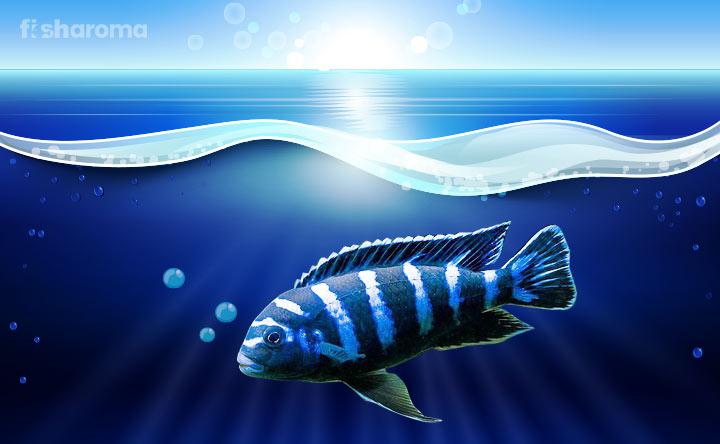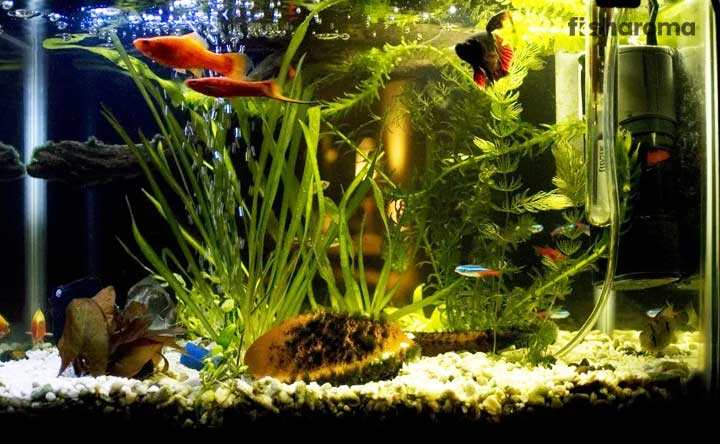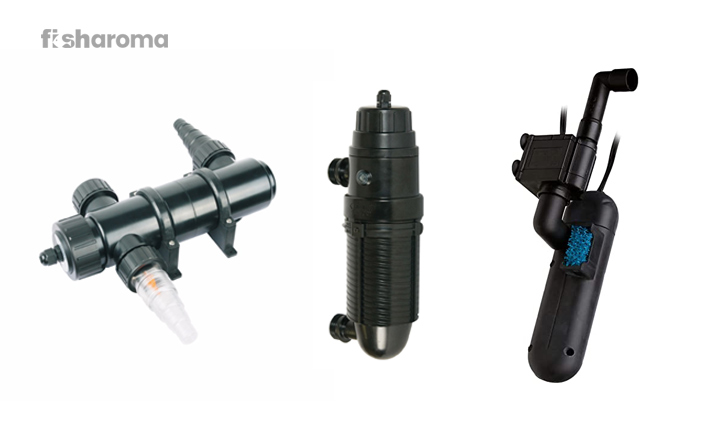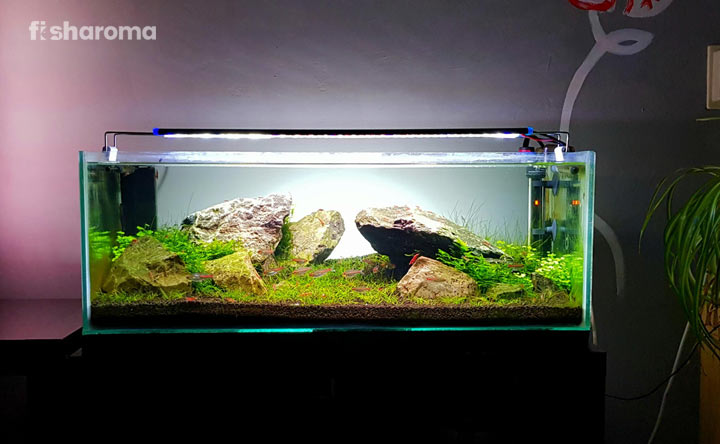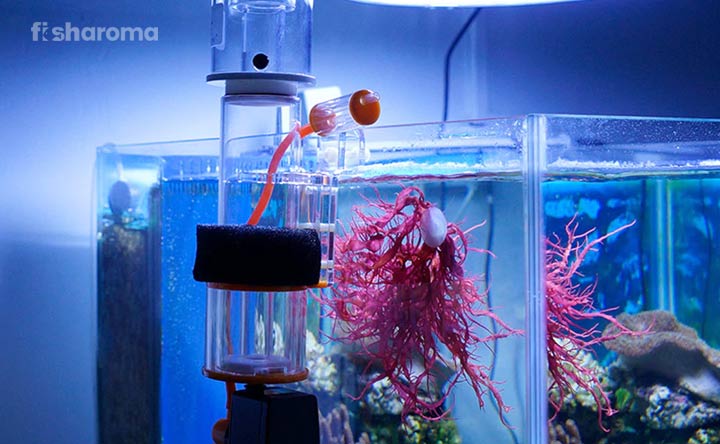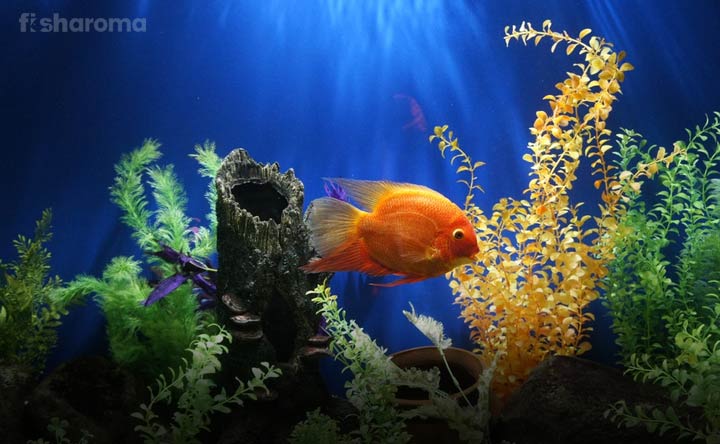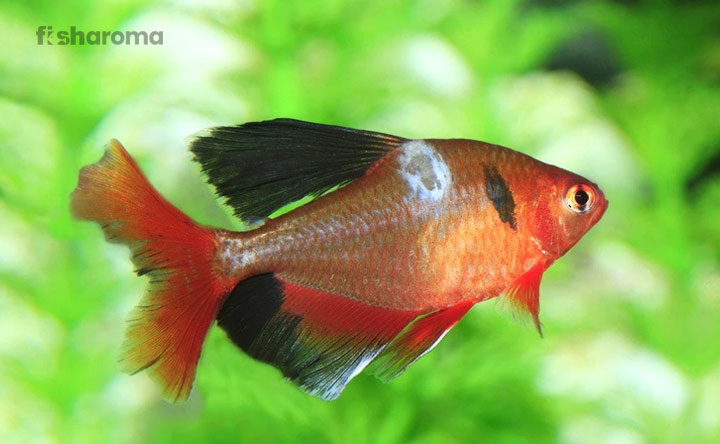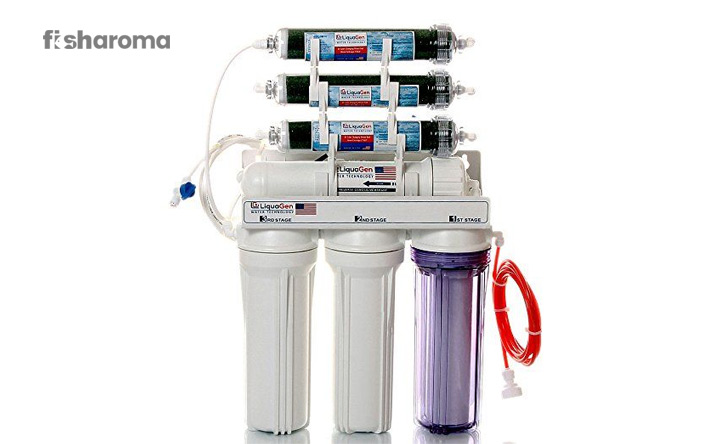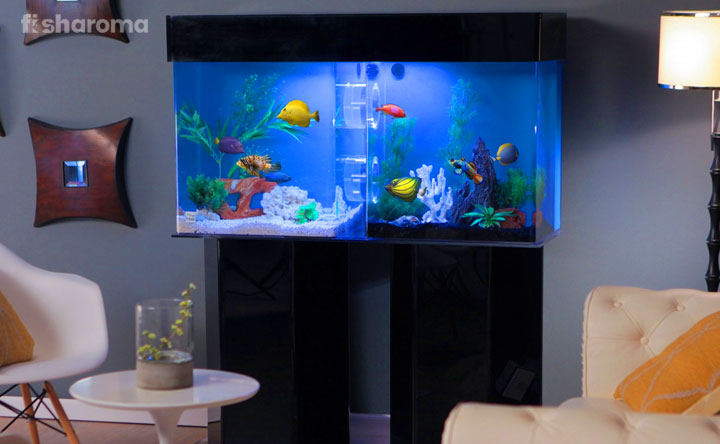Saltwater Vs. Freshwater Aquarium: 6 Myths Vs. Real Facts
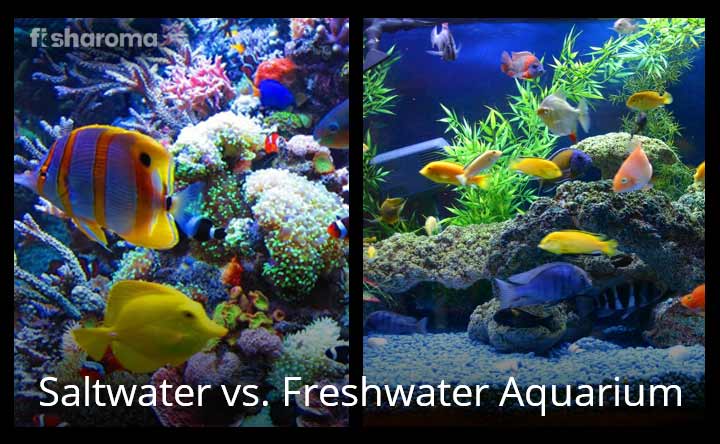
- Myth 1: It is Easy to Set a Freshwater Aquarium than the Saltwater Tank
- Myth 2: Beginners Should Not Start Fishkeeping with Saltwater Tank at the Beginning
- Myth 3: It is Hard to Clean Saltwater Aquarium
- Myth 4: Algae are More Seen in Saltwater Aquariums than the Freshwater Tank
- Myth 5: It is Not Possible to Convert Saltwater to a Freshwater Tank
- Myth 6: Saltwater Fish Tank Should be Always Bigger, so it is Hard to Set
Many people are fond of petting fish and other water species but they don’t have complete knowledge about fishkeeping. They have a wrong belief that in the analysis of saltwater vs. freshwater aquarium, the freshwater tank will always win, but the myth is wrong.
Nowadays, fish enthusiasts collect important ideas before they set a marine or a tropical aquarium. So, be a smart fish-keeper and get away from the myths of setting saltwater and freshwater aquarium. Take a short look at some myths and facts about saltwater vs. freshwater aquarium:
Myth 1: It is Easy to Set a Freshwater Aquarium than the Saltwater Tank
Some fish hobbyists have a wrong conception, that it is easy to build a freshwater fish tank because saltwater tank may need various chemicals, ammonia, marine plants, and oceanic ambiance. However, it is a because there are different settings for both the freshwater and saltwater aquariums. You need to maintain the water temperature, pH, salinity, hardness, etc. whether it is a freshwater or a saltwater tank.
For a freshwater aquarium, you have to keep fresh aerated water in the tank, check the temperature of water for different aquatic species and keep exact tropical plants in the tank. Similarly, you have to do some other settings for the saltwater tank also.
Different tank settings have different styles and specifications. So, you need to understand both the requirements and work according to that. It is neither very easy nor very hard to set any type of fish tank, so just come out of the false belief that setting a freshwater tank is easier than a saltwater tank.
Myth 2: Beginners Should Not Start Fishkeeping with Saltwater Tank at the Beginning
Some people find it complex to set a saltwater tank because you really need lots of things to keep in a tank such as corals, reefs, rocks, caves to make the ambiance of the aquarium same like a sea. Hence, fish-keepers find it a bit costly to set a saltwater tank. Moreover, novice aquarists also have a misconception that saltwater fish are hard to breed than freshwater fish.
Both the aforesaid beliefs are completely wrong because there are many saltwater fish that are peaceful, beginner-friendly, hardy, and easy to care like Damselfish, Tangs, Watchman Goby, and Clownfish.
This is also an incorrect myth that corals and reefs are needed to set a saltwater tank. You can just simply keep marine water and some sea rocks in a saltwater aquarium at the beginning to save cost. Later, you can decorate it with other necessary things if needed. So, keep away the myth that beginners cannot set a saltwater aquarium.
In the game of saltwater vs. freshwater aquarium, no one is the winner because it is moderate to set both the tank for beginner and expert aquarists.
Myth 3: It is Hard to Clean Saltwater Aquarium
If you are petting fish and other water species, cleaning and maintaining the hygiene is necessary for the health of the pet fish breeds. But it is neither easy to clean a tank nor it is too hard. You just have to work smart and avoid hard works to build a tank.
Fish hobbyists prefer to keep a freshwater tank because they think it is hard to clean a saltwater tank. Now, you have to play it smart while cleaning a marine water aquarium.
Just understand the nitrogen cycle by testing the water with water-tester, and if the nitrogen level is more then try to reduce the content of nitrogen by replacing a portion of the water. It will prevent the saltwater tank from getting dirty. So nowadays, people don’t think that it is hard to clean a saltwater aquarium because they can use smart ways.
Myth 4: Algae are More Seen in Saltwater Aquariums than the Freshwater Tank
Yes, this belief is true because the saltwater tank has more nitrate, ammonia which comes from the hardness and salinity of the water. But you really cannot be 100% sure that there will be no algal growth in a freshwater tank. A freshwater aquarium usually has more plants because river fish likes the eco-friendly environment.
To solve this problem, you can keep tank-cleaning fish and other water species like Bristlenose Pleco, Amano Shrimp and Siamese Fighter Fish who consume algae and help prevent the tank from getting dirty.
You don’t need to get worried about the algae because, in the race of saltwater vs. freshwater tank, no aquarium is the most algae-prone. Just keep the tank objects clean weekly to avoid algal growth to maintain hygiene.
Myth 5: It’s Not Possible to Convert Saltwater to a Freshwater Tank
This myth is completely wrong because fish-keepers can definitely convert saltwater tank into freshwater and vice versa. You simply need to make a few changes and adjustments which will not require much time.
Firstly, drain your aquarium, then rinse everything out, and after that wipe out the objects of the tank. Use chlorine-free warm water for rinsing. Replace rich substrate, filters and add some marine vegetation or reef works. You also have to add around 10% salt water and ammonia while changing a freshwater tank into a saltwater tank.
When you are converting a saltwater tank into the freshwater tank then it will need some time but it is not impossible to do so. Drain your aquarium and use warm chlorine-free water for the aquarium. Wash out the salt from each and every part of the fish tank. Moreover, clean out the salt from the objects of the tank, so that the salt does not negatively affect the freshwater tank’s species. Change the accessories of the tank and make it into a freshwater tank.
Always keep the fish in another bowl or tank while making the conversion of saltwater vs. freshwater aquarium. Your pet fish should not be stressed during the tank cleaning process because stress can be the only reason for their health issues.
Myth 6: Saltwater Fish Tank Should be Always Bigger, so it is Hard to Set
This fact is partially true because saltwater fish needs more space than the freshwater fish. Now, you may ask, why. So, it has a reason, marine water cannot hold the equal amount of oxygen like freshwater. According to research, saltwater contains about 80% of oxygen than freshwater. But it is not hard to set a saltwater tank if you use your brain.
If you don’t have huge space to keep a large aquarium, just purchase a small tank and keep 2-3 saltwater species in it. Moreover, try to keep the same size fish in a saltwater tank. If you do these things then there will be no scarcity of oxygen level and the marine fish will feel comfortable to live in a saltwater aquarium.
Final Thoughts
Now, you may have understood that you were engrossed with false myths with the settlement of saltwater vs freshwater aquarium before. So, you just need to break the shields of wrong myths and act smart while you are breeding tropical and marine water fish.
Acquire More Information about Fishkeeping
Along with the wrong myths, there may be many other doubts that you want to clear while planning to set saltwater or a freshwater aquarium. These topics may help you clear the doubts and breed your cute pet fish without facing any trouble:
- Things Not to Put in a Fish Tank: Fish-keepers must have a clear idea of what to put and what not to put in a fish tank while setting it because keeping wrong objects can harm the fish. Read details in this article of which things should be avoided.
- How to Clean a Fish Tank?: Hygiene and cleanliness are the most important things related to the health and wellbeing of water species. If you want to see your pet fish happy then follow some important steps mentioned in this article to keep your fish home clean.
- Beginner Aquarium Mistakes: When you are a newbie fish hobbyist, you should learn some important things that will help you breed different fish breeds. This article will help you know how to avoid some mistakes which are commonly made by the beginner aquarists.

